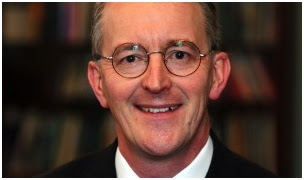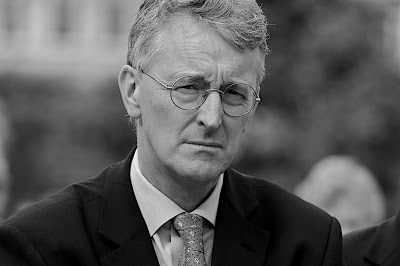 |
| Fabian Hamilton – Jeremy Corbyn’s new Zionist shadow Foreign Minister |
News. ‘I’ve seen two possible futures for the Israelis and Palestinians’ It is noticeable that you didn’t write for a
Palestinian paper.
visited South Africa, which incidentally was Israel’s closest military ally,
and came back with stories about how prosperous Black people there were and how
South Africa too was a “hi-tech centre” unlike the surrounding Black African states.
the situation of its Jewish people. For
example Lord Rothermere, owner of the Daily Mail, wrote in the Daily News
(4.9.33) re the situation of the Jews that:
denunciation against what they call ‘Nazi atrocities,’ which, as anyone who
visits Germany quickly discovers for himself, consists merely of a few isolated
acts of violence.’
you saw what you wanted to see.
Everything else was discarded.
there is no peace process’. But has there ever been a peace process? There have been many peace plans – from Rogers
to Kissinger to Kerry, but they have all fallen foul of Israel’s
intransigence. Israel is a settler
colonial entity that needs enemies in order to justify its militarism, even if
it has to manufacture them. The Zionist
movement which founded Israel, has always claimed the whole of the British Mandate
area of Palestine, Eretz Yisrael (the
Land of Israel).
expansion and settlement, under both Labour and Likud governments. Netanyahu’s Coalition Government unanimously
opposes a 2 State solution. When Israel’s Deputy Foreign Minister Tzipi
Hotoveli says
All of it is ours. We expect as a matter of principle of the international
community to recognize Israel’s right to build homes for Jews in their
homeland, everywhere.” The Guardian,
22/5/15
part of that statement do you not understand?
since disappeared. 600,000 settlers and
the strategic placement of settlements has
ensured that a Palestinian state is impossible to achieve.
Israel’s 2015 general election. He is
opposed to a Palestinian state. Why is
that so difficult to understand? Talk of
a ‘peace process’ and a 2 State solution serves one and only one purpose. It provides Israel with a pretext for
refusing to grant any civil or political rights for the 4½ million Palestinians
in the Occupied Territories. The ‘peace
process’ thus enables the present Apartheid situation to continue. Israel has no intention of agreeing either to
a Palestinian state or the granting of equal rights to the Palestinians under
occupation because that would be the end of a Jewish state. Those who talk of 2 States and a peace
process are accomplices in Israeli Apartheid.
that you treat the oppressed and the oppressor, the Palestinians and the
Israelis, as equivalent. People could be
forgiven for believing that Palestinians too fly war planes and drive tanks. You imply that there is a symmetry between
the two. Nowhere do you even mention the
Occupation.
based on ethno-religious supremacy. You
give succour to the Israeli claim that their main concern is a lack of security. You state that ‘the absence of a settlement
creates fear and uncertainty about the future in a very troubled region.’ This is complete nonsense. Israeli Jews voted overwhelmingly for parties
opposed to Palestinian self-determination and statehood. One can assume that people who vote for the
parties of a Greater Israel intend the consequences of their actions.
the teeth but the Palestinians who live under military occupation or siege in
Gaza. Not once did you mention the blockade
of Gaza which is preventing the rebuilding of Gazan homes after Israel’s blitzkrieg
which killed 2,200 people, including 550 children, in Operation Protective Edge
in 2014. Gaza is subject to a water
tight blockade, by air, sea and land.
Its water has been stolen and now 90% of its water is unfit for human consumption. Gaza has had its trade destroyed and its gas
fields stolen yet none of this was worthy of comment by you.
Fabian Hamilton, oppose sanctions against Israel but have nothing to say on the
blockade of Gaza. That is the measure of
your hypocrisy.
and ‘a pervasive tension’. Checkpoints
were of course part of the pass system of South Africa. You refer to ‘a cycle of killing.’ as if there
was parity between the occupied and occupiers.
But whereas you display sympathy for the ‘Young Israeli soldiers (who) are
stuck in the middle of it all’ you evince no sympathy for the Palestinians
whose city it is.
residents have ‘metal netting separating them to catch the rubbish that some
settlers throw down on their neighbours’ you draw no conclusions. The settlers in Hebron are a bunch of racist red
necks. Their fellows in the nearby
settlement of Kiryat Arba have a shrine and memorial to one Baruch Goldstein
who, in 1994 opened fire on worshippers
in the Ibrahimi Mosque killing 29 people and wounding some 125. Hebron’s settlers not only throw their shit
(literally) down on their Palestinian neighbours but they scrawl graffiti such
as ‘Arabs to the Gas Chambers’ on their walls.
But all this merits no comment from you.
to different rules of engagement for Palestinians and for settlers.’ To most people that would suggest a racist apartheid
style occupation. But for you it merely
‘fuels resentment.’
‘vibrant democracy’ ‘Labour must “take on” those who delegitimise Israel, says
Hilary Benn’ Not only is there discrimination
against Israeli Palestinians in every single sector of life such as education,
housing etc. there is also a virulent anti-Arab racism.
year, mobs march through the city chanting ‘Death to the Arabs’, a popular
slogan of the Right. According to an
opinion poll in the largest circulation daily, Yediot Aharanot 40 percent of Israeli Jews agree
that Arabs should not have a right to vote and over 50% believe Israel should
encourage its Arab citizens to leave the country.
the Education Ministry for use in Jewish high schools because it depicted a
romance between Jewish and Arab teenagers.
The book was held to pose a threat to Israeli Jewish national identity. In the words of the responsible Education
official, Dalia Fenig,
prohibited/secret love. Young people of adolescent age tend to romanticize and
don’t, in many cases, have the systemic vision that includes considerations
involving maintaining the national-ethnic identity of the people and the
significance of miscegenation.’
NGOs such as Btselem and Breaking the Silence in this ‘vibrant democracy’.
pair of spectacles with you.
was my third trip to a region I first visited more than a decade ago. The aim
was simply to hear, to see and to learn more from people and politicians on
both sides.
politically my overriding sense was of gloom at the lack of progress since the
Oslo Accords. To put it bluntly, today there is no peace process.
political and economic rights, hope is absent. The younger generation grew up
on promises of peace, progress and jobs but now there is just huge frustration
and despair.
the absence of a settlement creates fear and uncertainty about the future in a
very troubled region.
it can bring peace where once there was only conflict. All the Israeli and
Palestinian politicians I met told me about their continued commitment to two
states, with Israel living in security alongside an independent Palestinian
state. But this could all too easily slip away unless political leaders on both
sides act with urgency. Some people told me that the continued building of
settlements means that time is running out for a two-state solution, and yet
that the alternative does not bear thinking about.
rather than to the possibilities of future cooperation. The economic dividend
of peace would be enormous, especially for the Palestinians. But instead both
sides find it hard to move beyond suspicion and resentment.
I found myself reflecting a lot on our experience in Northern Ireland. At the
height of the troubles in the 1970s, it used to be said that the conflict had
been going on for 400 years and would still be going on in another 400 years.
And yet it isn’t. In the end, it took political leadership in both communities
to change things; a decision to seek peace rather than continue to blame each
other.
two states so that Israelis and Palestinians can live side-by-side in peace,
security and mutual respect but ultimately it must and will fall to leaders to
make this happen.
remembering that small steps can lead to big progress. A freeze on illegal
settlement building and vocal condemnation of violence would certainly help.
morning I spent in Hebron illustrated what can happen if the conflict continues
to fester and isn’t resolved. The main road, where once there was a thriving
market, has been closed off. There were checkpoints, no-go areas and a
pervasive tension, created in part by a cycle of killing. Settlers live above
Palestinian shopkeepers with metal netting separating them to catch the rubbish
that some settlers throw down on their neighbours. Young Israeli soldiers are
stuck in the middle of it all operating to different rules of engagement for
Palestinians and for settlers, further fuelling resentment.
alongside each other and worshipping freely. This is not a dream because it was
the history of Hebron for many years and there is no reason why is should not
be so again.
by the old railway station. Start-up media companies, a technology incubator,
restaurants, a music club and concert venue and a youth empowerment programme
supporting youngsters from some of the city’s most deprived
neighbourhoods.
provide jobs and opportunity for the next generation. It can be done.
security for Israel, all that is needed is for courageous political leadership
to compromise in the interests of peace.
when?
‘The new shadow minister didn’t mince his words in
speaking out against boycotts of Israel. “If you’re going to boycott Israel
because of what it allegedly does you should boycott China too which means not
buying computers or mobile phones. Are you going to boycott Burma? Are you
going to boycott all the countries that treat minorities far worse than Israel
ever does because Israel is a democratic country? Are you going to boycott all
the dictatorships in the world? If you’re going to do that then maybe you have
a case for boycotting Israel. Until then, it’s absolutely out the question.
It’s simply anti-Semitic.”
He said he was “disgusted and appalled” at the
recent vote by Labour’s national executive committee to sever ties with
security firm G4S over its work in Israel, adding that holding the vote after
many members had left the meeting was “disgraceful”. It came despite the
party’s long-standing stance against boycotts.
Fabian Hamilton also stressed that he had opposed
sanctions against Iran “because it hits the ordinary people far more than the
elite leadership. The only time it worked was in South Africa. It’s a cheap and
nasty way of making a point”.’
state as a with a “vibrant democracy”, adding: “Our future relations must be
built on cooperation and engagement, not Israel of Israel. We must take on
those who seek to delegitimise the state of Israel or question its right to
exist.”

